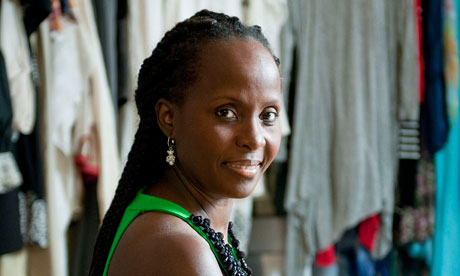
'It's genetics that are forcing me to do this," says Shirley McQueen. After seeing 10 close female relatives, including her mother and older sister, die of breast cancer, the 47-year-old has made a drastic decision. She is going to have both her breasts removed.
"From an early age I have accepted that I am going to die, and I have prepared my son and daughter for that," says McQueen. Given the sheer number of her female relatives to get the disease, and the fact none survived it, Dr James MacKay, a genetic oncologist who is treating McQueen, believes there is a particularly aggressive breast cancer gene within her family which will ultimately trigger it inside her too.
"I don't mind losing my breasts if it means that I stay free of breast cancer," McQueen says forcefully. "I've been on Death Row since I was five and I want to get off it. I want to be around for my grandchildren."
Recent years have brought breakthroughs in knowledge about the genetic basis of conditions, such as obesity and cancers and there has been a rapid increase in the availability of NHS and over the counter tests to identify or rule out certain diseases. Ophthalmology company Optegra has launched a genetic home testing kit in the last few weeks, for example, to assess the risk of developing Age-Related Macular Degeneration, a leading cause of blindness, while the BCtect blood test claims to allow early detection of breast cancer.
"Genetics is becoming more of an issue for patients," says Jane O'Brien of the General Medical Council, which regulates doctors. But genetic conditions throw up difficult practical and ethical issues for doctors. "You may, in the course of inquiries about one patient, find out things about other people that can have a profound impact on their health. Instead of it just being Patient A, it's about his children and siblings too," explains O'Brien. But should doctors pass on to these others the news that there is a risk, possibly a high risk? Conditions such as Huntington's disease, which attacks the central nervous system, or Marfan syndrome, which affects the connective tissue that keeps the body together, are the result of a single gene mutation which may be inherited from a parent and so may cause disease in the patient's siblings, and possibly the wider family too.
Last autumn the GMC revised its guidance to doctors on confidentiality, and introduced a section on genetic and other shared information – situations when a diagnosis in one patient might point to the certainty or likelihood of a blood relative having the same condition. Most patients, like McQueen, will agree to their relatives being told about their condition, so family members can have preventative treatment, get screened to assess their risk, or prepare themselves for the reality of becoming ill. "However, a patient might refuse to consent to the disclosure of information that would benefit others, for example where family relationships have broken down, or if their natural children have been adopted," says the GMC's guidance. So what should a doctor do?
"In these circumstances, disclosure might still be justified in the public interest," states the GMC, adding, "If a patient refuses consent to disclosure, you will need to balance your duty to make the care of your patient your first concern against your duty to help protect the other person from serious harm." O'Brien says that the dilemma is no different to when a patient who is a bus driver has a serious alcohol problem or a patient admits to abusing children. The public interest demands disclosure.
Such dilemmas are increasing, says Dr Emma Cuzner, a medico-legal adviser with the Medical Defence Union (MDU), which helps doctors who have been accused of misconduct. Between 2000 and 2004 the MDU had 11 inquiries about confidentiality in patients found to have a genetic abnormality. Between 2005 and 2009 they had 22.
"These are not large numbers but I think it shows that this is a growing area of concern for doctors and one that is likely to continue as the number of genetic tests available increases," adds Cuzner. "These cases are delicate, and emotionally charged and can involve an awful dilemma, for the patient and the doctor." In 17 of those 33 cases doctors were seeking advice about whether or not to disclose information about a patient's genetic status that might affect a relative – the other 16 were patients asking for their genetic condition to be omitted from medical forms, usually for insurance applications, or be removed from their medical records altogether.
The MDU says a scenario when a doctor would be justified in breaking confidentiality could be if a patient was found to have an inherited form of colon cancer. If a father has it, each of his children has a 50% chance of getting it and siblings also have a 50% risk, while a nephew or niece would also be at risk. Once the relatives knew they could get screened and then – if necessary – have surgery to minimise their risk. If the patient did not want anyone else to be told the doctor could inform them. In this case a doctor could break the patient's confidentiality, but should first take advice, from a geneticist or a defence organisation such as the MDU, and think carefully, as the decision may be challenged.
It's a tricky dilemma, but, as Cuzner says, one that is becoming more urgent. "As tests become more sophisticated, and more and more conditions are found to have a genetic basis, the medical profession will be confronting these situations more and more in the future."

